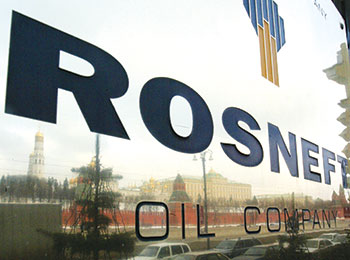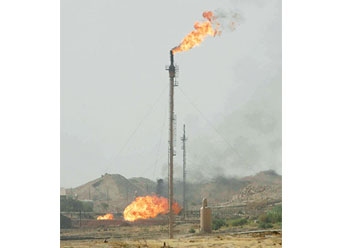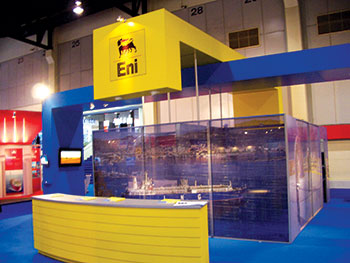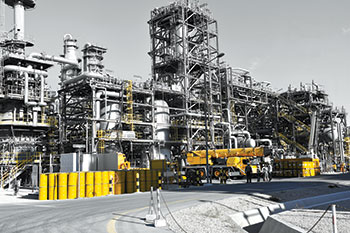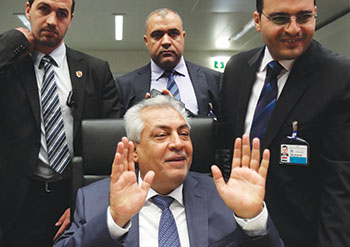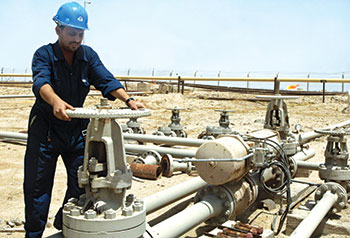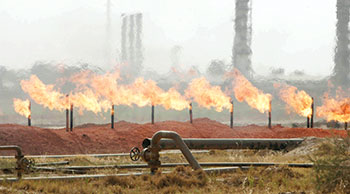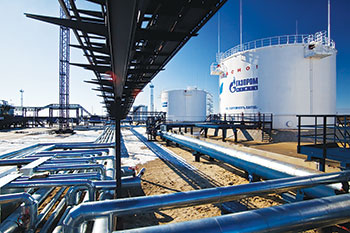
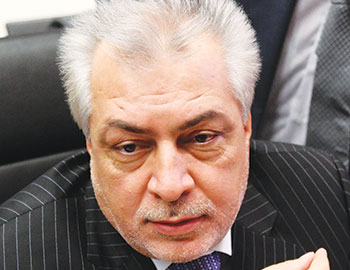 Luaibi ... defending the new terms
Luaibi ... defending the new terms
A new model contract was used for the bid round which was awarded in April. Where previously Iraq used a technical service contract, for the new round it re-drew the contracts. Among the changes were dropping the per barrel fee
Iraq has signed preliminary deals with companies to explore for oil near the border with Iran and Kuwait, the oil ministry says on its website.
Six agreements awarded under Iraq’s 5th licensing round were signed, but further progress could be slow without a new government in place following recent national elections. The exploration blocks included 11 areas along the border with Iran and Kuwait, and one offshore block in the Arabian Gulf.
A new model contract was used for the bid round which was awarded in April. Where previously Iraq used a technical service contract, for the new round it re-drew the contracts. Among the changes were dropping the per barrel fee and moving to a revenue sharing model.
The contracts must now be sent to the ministerial energy committee and the Iraqi cabinet for approval before being confirmed as binding contracts.
The contract model used by Iraq’s oil ministry has come under intense scrutiny in recent months. Oil companies have complained that returns on investment are too low, with progress slowed by delayed payments and contract approvals. Previously, bidding rounds have used technical service agreements, with specific contract models covering costs and remuneration fees paid for production.
Key changes under the new contract terms include cost recovery, which will be linked to oil prices. The payments for costs and profits will also be made in crude, rather than cash. The oil companies were also awarded the blocks on the basis of a share of its revenues, rather than remuneration, as under previous rounds.
Oil minister Jabbar Al Luaibi defended the new terms in a statement published on the ministry’s website. In particular, Al Luaibi says the changes addressed criticism of Iraq’s previous auctions, that Iraq had to allocate huge amounts of equity oil to cover the costs and remuneration fees when oil prices fell. This reached around 1 mbpd at the end of 2016, out of exports of 3.5 mbpd.
The latest round saw Sharjah-based Crescent Petroleum sign an agreement for Gilabat-Qumar, Khashum Al Ahmer-Injana, and the Khider Mai block. China’s Geo Jade Petroleum has taken the Naft Khana and Huwaiza blocks. Hong Kong-based United Energy Group signed for the remaining Sindbad block.
Although Geo Jade and United Energy Group are new entrants to Iraq, Crescent Petroleum already has operations in the semi-autonomous Kurdistan Region of Iraq.
The company is a major partner in Pearl Petroleum, producing gas from the Khor Mor field and is developing the Chemchemal gas field. If the exploration deals are approved by the federal government in Baghdad, this will be Crescent’s first agreement outside Kurdistan.
However, it is uncertain if the interim government has the authority to approve these contracts which have a lifespan of 20-34 years. The bid round was due to be postponed until after Iraq’s national and provincial elections in May, but was hastily rearranged.
The political bloc led by Shia leader Muqtada Al Sadr emerged as the biggest winner from the elections, ahead of the incumbent Prime Minister Haider Al Abadi’s bloc. But the results are still being contested before any coalition deal can take place.



































































